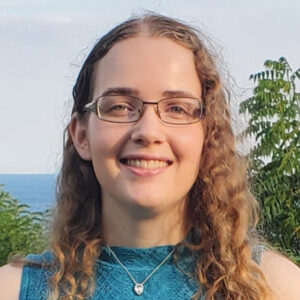
Claire Bolda is a senior majoring in Physics with an Astronomy Emphasis who is currently involved in extragalactic astronomy research with Dr. Dawn Erb. Since the fall of 2021, she and Dr. Erb have been researching a pair of galaxies in a large-scale galaxy filament using observations from the Keck Cosmic Web Imager (KCWI), an integral field spectrograph on the Keck II Telescope. Spatially resolved spectra taken by KCWI of extended gaseous halos, called Lyman-α halos, surrounding each galaxy indicate that gas may be flowing into one of these galaxies from its environment or from a potential merger between the galaxies. Claire and Dr. Erb are attempting to determine the source of the inflowing gas more precisely, as this will provide insight into how galaxies in the early universe acquire gas to fuel new star formation. Additionally, Claire has participated in pulsar astronomy research through the Student Team of Astrophysics Researchers (STARS@UWM) directed by Dr. David Kaplan and Dr. Sarah Vigeland since the fall of 2019, first as a student researcher and now as a student leader. Through this opportunity, she made the initial discovery of two pulsars, PSR J2035+36 and PSR J2041+46, in the Green Bank Telescope’s 820 MHz pulsar survey. In the near future, Claire plans to submit a paper about her research with Dr. Erb for publication and hopefully pursue a PhD in astrophysics.
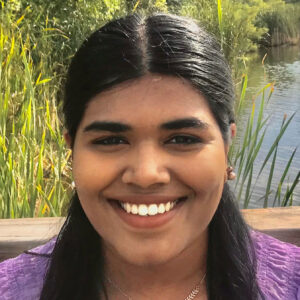
Dhivya Senthil Murugan is pursuing a double major in neuroscience and cellular/molecular biology with a chemistry minor. Her research work is under the guidance of Dr. Xiaohua Peng in the Chemistry & Biochemistry department since Fall 2021 and focuses on reactive-oxygen species activated nitrogen mustard prodrugs that were synthesized by the Peng group to combat triple-negative breast cancer.
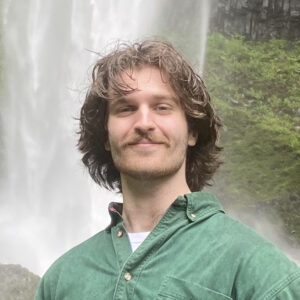
Alex Nelson is a fourth-year student completing his BS in Biology and Neuroscience and is looking to attend medical school next year. He worked alongside Dr. Joshua Gwon in the College of Nursing and Dr. Han-Joo Lee in the Department of Psychology for over two years, beginning in the summer of 2020. Alex now serves as the lead research assistant in Dr. Lee’s Anxiety Disorders Laboratory (ADL). The rise of electronic nicotine delivery systems over the past decade continues to concern public health officials, as they not only reckon with the emerging evidence characterizing long-term health outcomes but also with the severe limitations of treatment strategies. From his work on eye-tracking pilot investigations, Alex seeks to answer several questions: 1) Why are 18–24-year-olds such a vulnerable demographic for tobacco marketing and, particularly, e-cigarettes? 2) What physiological and psychological changes make cessation so challenging for these users? 3) How can an intervention target these changes efficaciously? Addiction psychology is rooted, in part, by the phenomenon of attentional bias, or when a user’s attention elevates to the presence of an addictive substance in their environment. Alex facilitated the development of a mobile app that trains e-cigarette users to redirect their attention away from their devices, thus encouraging cessation – a form of psychotherapy known as attentional bias modification. This work has given Alex presentation opportunities from Wisconsin to Colorado and even a publication in the Journal of Rural Health. As he works toward his thesis these final two semesters, Alex will be studying the psychophysiogical, autonomic forces that underly attentional bias. These ADL-based investigations are to explore arousal, marked by measurable increases in heart-rate variability and skin conductance, that serve to link an emotional response to its physiological origins in hopes of better understanding this form of addictive behavior. After graduating, Alex intends to pursue an MD/MPH dual degree in order to apply a similar bio-psycho-social approach to patient care. When he’s not in the ADL, you can find Alex tending to the garden beds around campus. Email: nelso624@uwm.edu.
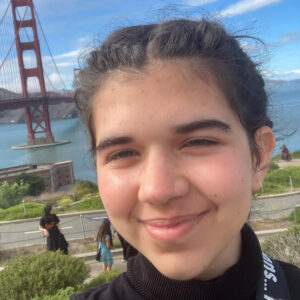
Naomi Raicu is a senior pursuing a BS in Physics, a minor in Mathematics, and an Honors degree. Starting in 2018, she worked as a high school research intern under Dr. Ionel Popa in the Popa Biophysics Lab until joining as an undergraduate research assistant through the 2020 UR@UWM program. As a SURF recipient since Spring 2021, she has presented her work, which deals with the characterization of protein folding mechanisms, annually at the National Conference on Undergraduate Research, the UWM Undergraduate Research Symposium, and the UW System Symposium. In her current project, Naomi is studying how various fluorescent environment-sensitive dyes characterize the folded state of a protein so that a framework for discovery of drugs that target protein misfolding can be established. As protein misfolding leads to debilitating conditions such as Alzheimer’s Disease, finding ways to prevent misfolding is a crucial task. Performing research in Dr. Popa’s lab has taught Naomi how to design experiments, work independently, and communicate her results effectively. Moreover, her research experience has led her to explore other research areas; for the past two summers, she has worked as a research intern for Fermi National Accelerator Laboratory’s quantum computing internship, where she worked on developing cryogenic cable simulations for Rigetti Computing. She will continue as a Rigetti intern this academic year. As a SERA student, Naomi looks forward to connecting with students interested in undergraduate research. As she has had support and advice from other students and researchers throughout her internships, she would like to take her turn in offering that same support to others.
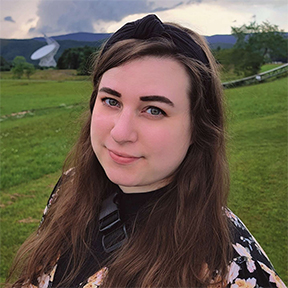
Sparrow Roch is an undergraduate senior at the University of Wisconsin – Milwaukee double majoring in Computer Science and Physics with an Astronomy emphasis. They first became involved in undergraduate research in Fall 2018 with UWM’s Student Team of Astrophysics Researchers (STARS@UWM) and have been a student leader for the group since Fall 2019. Sparrow has participated and continues to participate in multiple astronomy-related projects at UWM and elsewhere. Sparrow is currently working under the guidance of Dr. Sarah Vigeland on a project that relates to pulsars: quickly rotating neutron stars that emit beams of radiation. Timing the unique signals from pulsars at different locations in the galaxy allows for novel ways to study the universe, including the potential to detect gravitational waves at much lower frequencies than those previously detected. This project aims to investigate how an inaccurate understanding of an observatory’s position might affect pulsar timing data and gravitational wave analyses. Sparrow is also interested in physics and astronomy curriculum development, updating and creating welcoming and accessible educational materials, and multimedia science communication and outreach. After graduating, Sparrow hopes both to further pursue astronomy in graduate school and to seek out more opportunities to enthuse about science. Please feel welcome to reach out! Email: mrroch@uwm.edu.
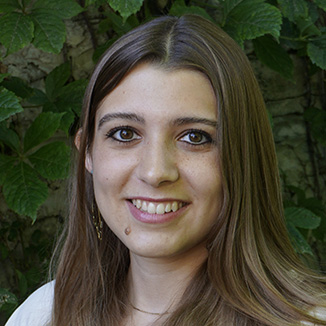
Marina Slawinski is a senior at UW-Milwaukee majoring in Biomedical Engineering. She began her involvement in undergraduate research in 2018 as a UR@UWM participant and continued as a SURF recipient, working on multiple projects centered around biomaterials. Under the direction of Dr. Ionel Popa, she investigated various methods of altering the physical structure and mechanical properties of protein-based hydrogels. The ability to fine-tune the material properties can lead to improvements in soft-robotic applications and 3D cell scaffold designs to aid in tissue regeneration. In 2021, Marina began working with Dr. Priyatha Premnath on a project developing double-walled microparticles to assist in bone regeneration. Her senior project will focus on further characterizing the drug release kinetics of the microparticles and examining the effects on bone healing in vitro. Marina is grateful that undergraduate research has played an integral role in her experience at UWM and further ignited her interest in biomedical research. She has had the opportunity to present her research in UWM’s SURF Symposium, the CEAS Student Research Poster Competition, and the UW System Symposium, and to contribute to multiple academic publications. She looks forward to continuing her involvement in undergraduate research and sharing her passion with other students this year. After graduation, she plans to pursue graduate studies focused on tissue engineering and regenerative medicine. Email: slawins6@uwm.edu.
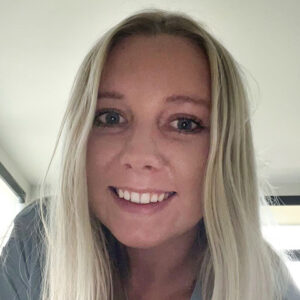
Taylor Wilcox is an undergraduate researcher with an intended major in Biochemistry and a minor in Biology at the University of Wisconsin-Milwaukee. She is currently involved with the Arnold Group, performing biochemical assays which are supported through the Office of Undergraduate Research since 2019. Taylor leads the project, “Development of new treatments for neuropathic pain based on imidazodiazepines” under Dr. Arnold, an exemplary mentor. She is active in presenting her findings on local and national platforms. She had the opportunity to present her research at the National Conference for Undergraduate Research 2022 and 2021, UWM Undergraduate Research Symposium 2020 and 2021, UWM Department of Biochemistry and Chemistry Research Symposium 2020, and American Chemical Society Chemistry Week Poster Presentation 2021. At these conferences, she has received numerous awards for her research and presentation. Having a profound exposure to research has led Taylor to strive to pursue her Ph.D. after graduation and complete her undergraduate research with a comprehensive publication summing up her three years of work. Outside of the laboratory, Taylor works at Froedtert Hospital on the Gynecology/Oncology unit and is the President of the Mortar Board’s National Chapter. She also volunteers with Big Brothers Big Sisters Metro Milwaukee and founded the organization, Christmas Cards for Cancer Patients. She volunteers globally and highly recommends the organization, Maximo Nivel. Taylor enjoys traveling which prompted her to study abroad at the University of Glasgow in the United Kingdom. While there she participated in human cadaver research resulting in a publication due to an anatomical anomaly. Taylor welcomes any questions regarding undergraduate research and can best be contacted at: tmwilcox@uwm.edu.
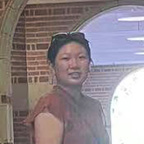
Weiling Xia is a senior Materials Science & Engineering student at the University of Wisconsin-Milwaukee who will be graduating in Spring 2023. She has been working under the guidance of Dr. Xiaoli Ma on various projects since March 2021. Weiling started working in the lab by assisting with an ongoing project to study the performance of covalent organic framework membranes in single-dye separation. Her research has been funded by the Office of Undergraduate Research since the summer of 2021 through the SURF program. After gaining a deep understanding and hands-on skills from membrane projects, she started working on her own project about β-ketoenamine-linked COF membranes for water treatment and desalination under Dr. Ma’s supervision, with a focus on examining the synthesis-structure-property relationship. During her time as an undergraduate researcher at UWM, she presented her research findings at various symposiums and national conferences including the North American Membrane Society annual meeting, UWM Undergraduate Research Symposium, and College of Engineering & Applied Science Symposium. As a SERA recipient, she intends to continue work on this project and apply a variety of materials characterization techniques to elucidate the structure characteristics of resulting COF membranes. She aspires to continue studying for a master’s in material engineering after graduation. Eventually, Weiling hopes to work in the field of membrane filtration and help to contribute the development of wastewater treatment.